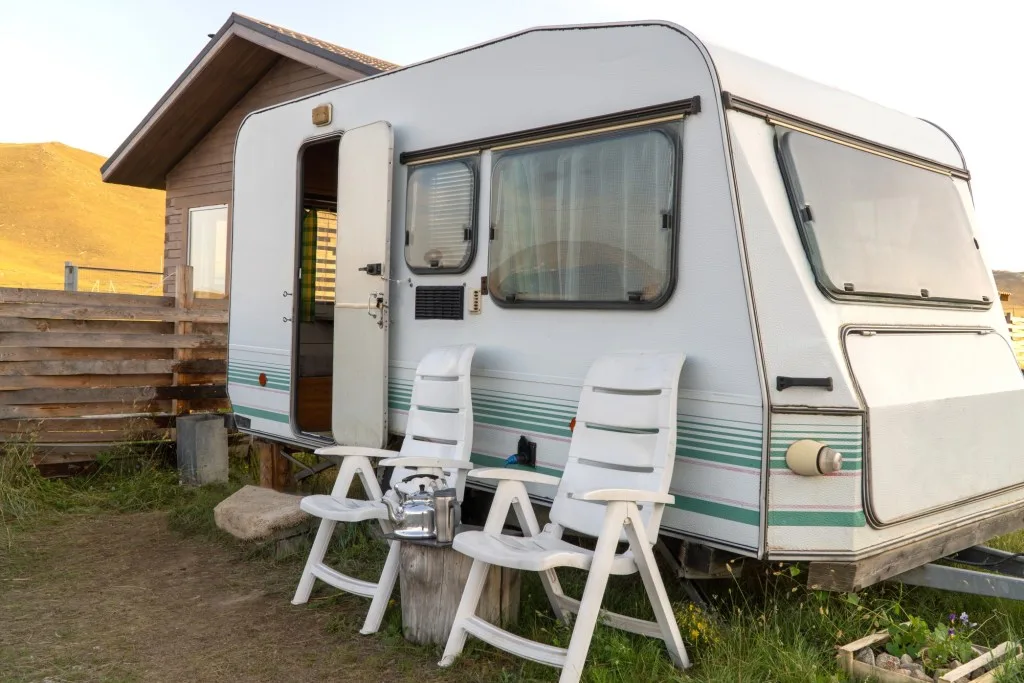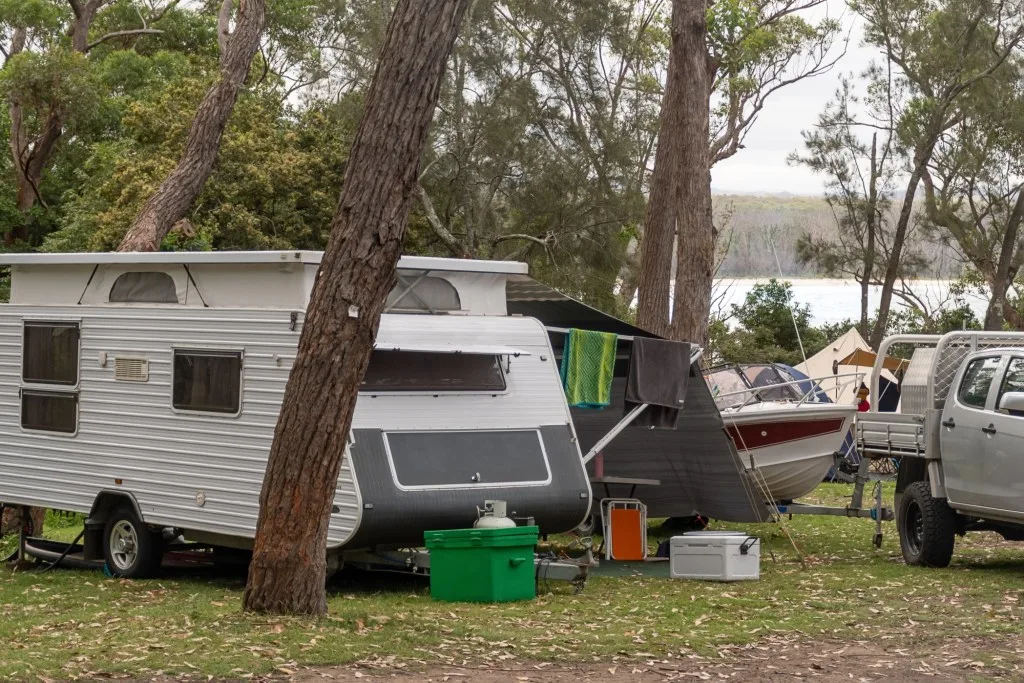Although Instagram and TikTok may make RVing look like the perfect life, there’s no such thing. RVing has its own challenges and drawbacks that disrupt the fun attractions and beautiful landscapes.
In fact, if you don’t prepare for these RV headaches, they may ruin your travel experience.
Let’s learn more about the most common problems RVers face and how to prevent these issues from happening.
What Are the Most Common Problems With RVs?
Recreational vehicles aren’t perfect. Most of them don’t use elite products or high-quality construction. How often RVers have to deal with a broken handle or leaky pipe, especially after spending so much money on an RV, can cause a lot of frustration. Let’s look at a few of the most common problems with RVs.
RV Toilet and Water System Clogs
Many RVers have to deal with a problem with their toilet, often a water system clog. Perhaps someone used regular toilet paper that didn’t dissolve in the tank. Or maybe someone hasn’t cleaned out the black tank in over a year. Most water system clogs are avoidable. However, sometimes bad things just happen.
It can be a nasty mess when dealing with a water system clog. It’s not a fun repair. Thankfully, it’s usually something that the RV owner can do themselves, although sometimes they need to call a mobile technician.
You may have an easy fix, like pouring dish soap into the tank and allowing it to lubricate the interior and get the clog moving. Other times you might need to use a wand to clean the inside of the black tank and remove the waste stuck to the sides. Regardless of the remedy, it’s usually not too bad of a headache to get fixed.
Pro Tip: Avoid an RV toilet clog by finding out Is Toilet Paper Safe to Put in Your RV Black Tank?

Leaky Roofs
On the other hand, a leaky roof is a serious problem. Water is an RVs worst enemy. It can cause mold and damage wood. Since most RVs use wood, water leaks can ruin the structure if not found quickly and repaired.
If you find a leak in your roof quickly, you can locate and recaulk the area. If you find a hole, you’ll need to use a special RV flex repair tape. This tape will stick to a rubber roof and flex as the RV shifts.
However, if you don’t find the leak soon enough and damage is already done, you’ll have to take the RV in for extensive repairs. Leaky roofs can lead to structural damage in the walls, which can compromise the RV’s integrity.
Slide-Out Issues
Having problems with slide-outs is another common headache RVers face. When it’s time to pack up, you expect the slide-outs to come in as they should. However, sometimes the mechanics just don’t work. The motor may have gone bad, or the slide might have gotten off track. You can’t safely move your RV without bringing the slides in, so this is a huge inconvenience.
Other times you may have a leak. It’s common for water to get inside a slide. The seals could have rotted, or they just don’t work to keep the water out anymore. In this case, locating the problem quickly is essential to prevent further damage.
Air Conditioning Problems
Finally, one of the biggest headaches in the summer is when the air conditioning unit freezes up or doesn’t cool off the RV. Not cleaning the air filters regularly can lead to insufficient airflow. Freeze-ups can cause compressor damage. The air conditioner won’t blow out cold air if your thermostat doesn’t work. Additionally, the capacitor could go bad, especially on an older unit.
You can do some repairs yourself, like replacing the thermostat or cleaning the air filters. But if you need to replace the motor or compressor, you might consider calling an RV technician.
Pro Tip: RV air conditioners can get complicated. Stay sweat free by using these 15 Ways to Keep Your RV Camper Cool This Summer.

How to Prevent These Headaches
You can prevent many of these problems. Negligence leads to repairs. However, sometimes bad things just happen. But if you stay on top of your regular maintenance and take proper care of your RV, you can avoid most of these headaches.
Keep Up With Regular Maintenance
The biggest preventative measure when owning an RV is regular maintenance. Create a monthly schedule and post it somewhere you’ll see. Maybe the first Saturday of every month will become RV maintenance day. Some things like tightening screws and bolts should happen monthly. Other things like cleaning the air filters and checking for seal cracks happen every other month or quarterly.
Whatever the time frame, make sure to keep up with proper maintenance. You’ll catch problems before they become bigger issues, and you’ll prevent additional headaches. It takes just a couple of hours and is well worth the effort.
Store RVs Properly
Proper RV storage is essential. If you put your RV away for the winter, store it in a covered location if possible. Protecting your RV from the elements will prevent damage. Use an RV cover if you can’t store it underneath a shelter.
First, remove all food to keep pests away. Then close the shades so the sunlight doesn’t damage the furniture. Next, winterize the water lines, so they don’t freeze and burst. When you store your RV, do it properly to reduce damage and problems when pulling it out in the spring.

Use RV-Safe Toilet Paper
One of the easiest ways to keep your water system from clogging is by using RV-safe toilet paper. This type of toilet paper dissolves quickly, which means it won’t get stuck in the valve when you empty the tank. And it won’t stick to the sides of the black tank. If you buy proper toilet paper, you can prevent dealing with a stinky disaster.
Travel Less, Stay Longer
Finally, the less you travel, the less wear and tear you put on your RV. This doesn’t mean stop going places, just slowing down. Full-time travelers can benefit from staying two weeks or one month in locations, so they don’t have to haul their rig as often. It’s like an earthquake in an RV when driving. The shocks, suspension, and frame go through a lot at 60 mph every week. So slow down and take some pressure off of your RV.
Are RVs High Maintenance?
RVs require upkeep. If you don’t prepare to maintain an RV properly, you might consider using Airbnbs instead. With a camper, you have to get up on the roof and inspect the seals and under the frame to inspect the axles. You must also take a screwdriver and walk around tightening screws and bolts. There’s a lot of work that goes into maintaining an RV.
Are RVs Worth the Money?
However, RVing is worth the effort if you want adventure in the great wide. Taking your family on a cross-country trip to the Grand Canyon or the cliffs of Acadia National Park might be a once-in-a-lifetime experience. Don’t pass it up just because of the headaches RVs bring.
RVs can be expensive. There’s a huge range of pricing, from entry-level travel trailers to luxurious Class A motorhomes. Choose an RV that fits your budget and set aside money monthly for maintenance and repairs. You’ll definitely need it.
Do you have an RV? Do you think it’s worth the investment? Tell us your thoughts in the comments!
Discover the Best Free Camping Across the USA
To be honest with you, we hate paying for camping. There are so many free campsites in America (with complete privacy).
You should give it a try!
As a matter of fact, these free campsites are yours. Every time you pay federal taxes, you’re contributing to these lands.
Become a FREE CAMPING INSIDER and join the 100,000 campers that love to score the best site!
We’ll send you the 50 Best Free Campsites in the USA (one per state). Access the list by submitting your email below: